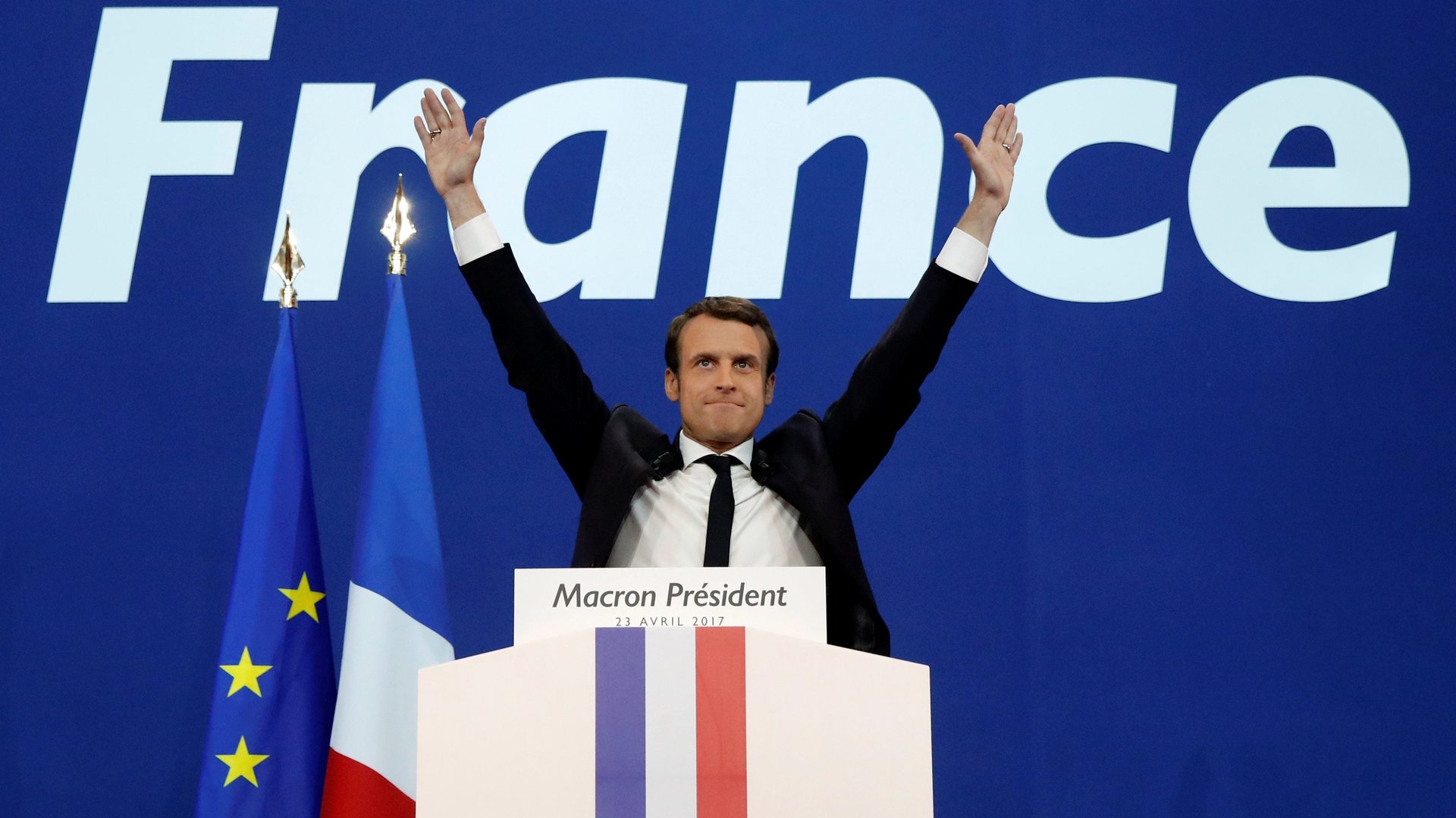Why young French voters don’t want a progressive president
Young voters didn’t get what they wanted on Brexit or Donald Trump. And the French presidential election has proven to be no different.


Young voters didn’t get what they wanted on Brexit or Donald Trump. And the French presidential election has proven to be no different.
Centrist candidate Emmanuel Macron and far-right leader Marine Le Pen took the two top spots in the first round of voting on Sunday (April 23). Macron is expected to win the second round of the election on May 7 by a large margin, to the dismay of young voters across France. Macron is the third choice of young voters, according to a recent poll.
Voters aged 18-24 came out in large numbers to support far-left candidate Jean-Luc Mélenchon (who won around 30% of the youth vote). Le Pen was the second most popular candidate among young voters, winning 21% in the first round. Macron polled in third place, with just 18%.
In stark contrast to Britain and the US, the results of the French poll highlight how young people are fueling populism in a country where youth unemployment has remained stubbornly high since the financial crisis in 2007. Around a quarter of French young people are now unemployed— three times higher than in Germany and nearly double the UK.
With the failure of French center-right and then center-left governments to bring that number down, young voters have flocked to anti-globalization candidates Le Pen and Mélenchon, rather than progressives.
Le Pen is in many ways the envy of the far right in Europe. She’s raised the Front National (FN) from the fringes with support from young voters and women. Since taking the reins of the FN in 2011 from her father (who she later booted out for describing Nazi gas chambers as “a detail of history”), Le Pen has been determined to rebrand the party. She has courted young voters by running the FN like a nimble startup, while also taking up traditionally left-wing causes, such as women’s rights, and championing the welfare state (albeit for French citizens, and not foreigners).
Young voters have taken a beating across the world. They lost the referendum on Britain’s membership within the European Union—64% of 18- to 24-year-olds wanted to remain—and their preferred candidate Bernie Sanders lost the Democratic nomination to Hilary Clinton, who went on to lose to Donald Trump.